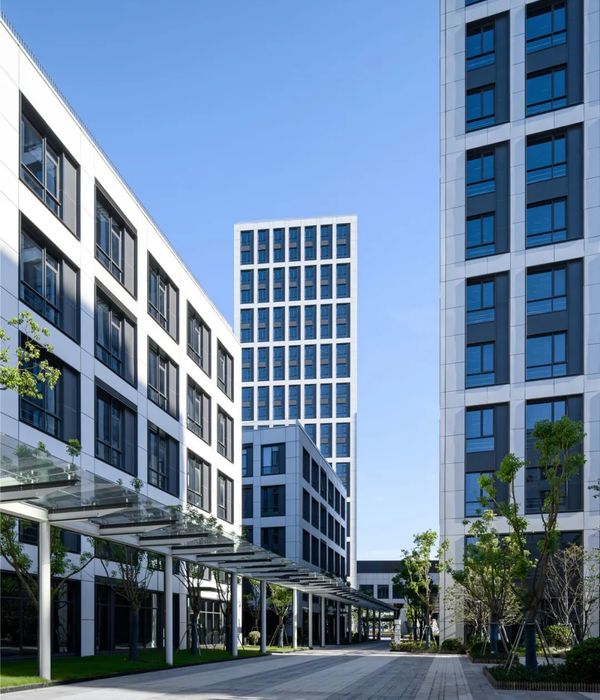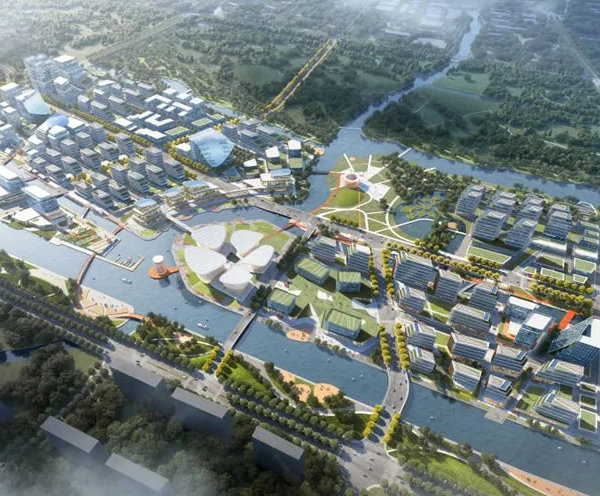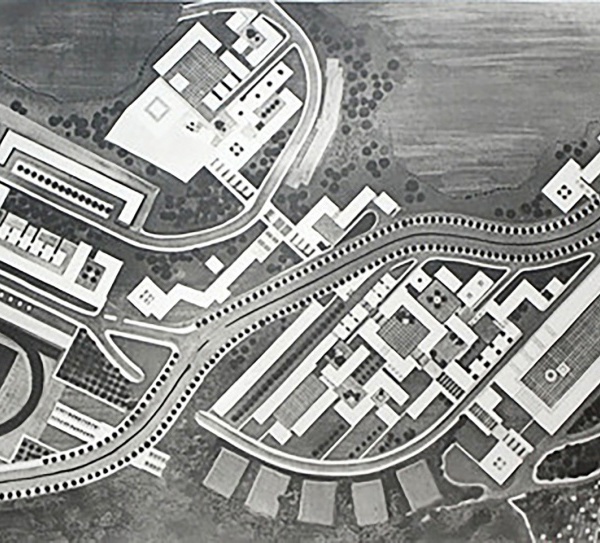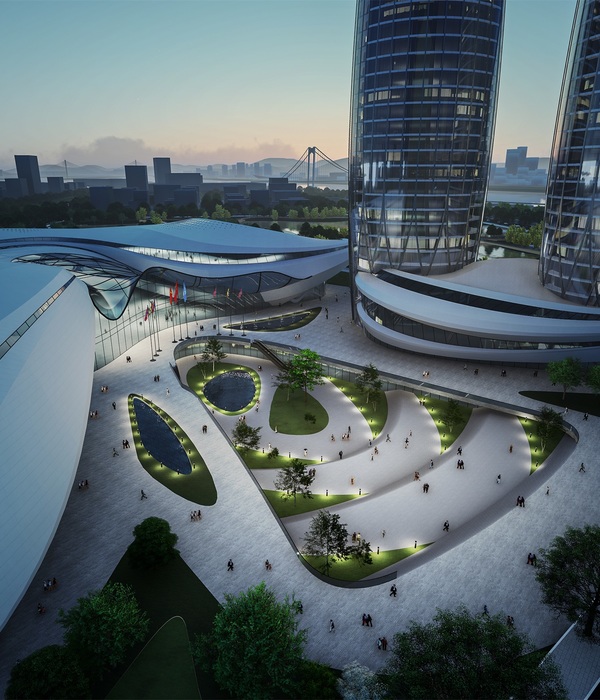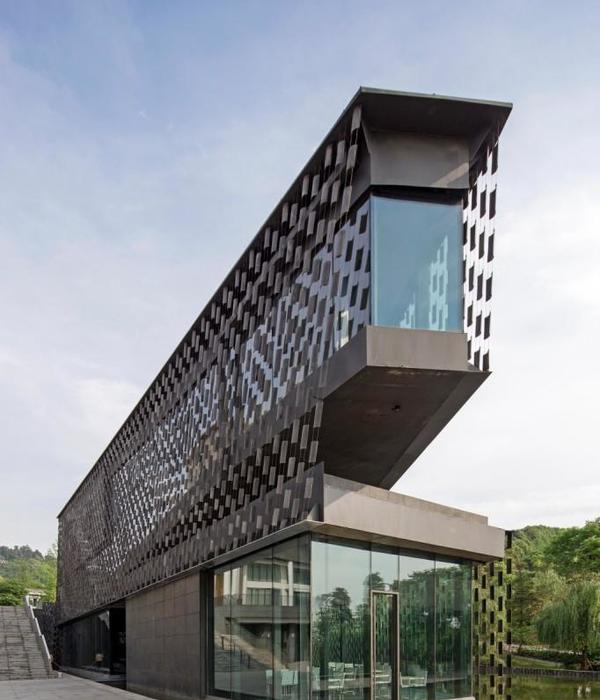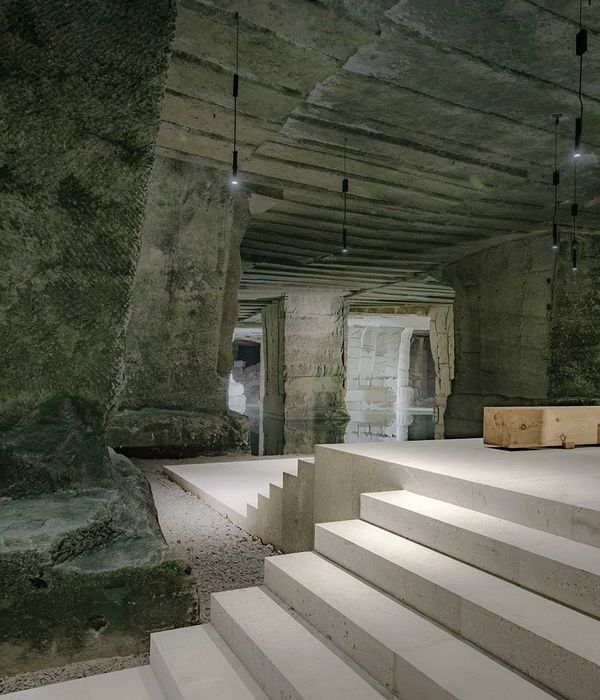- 项目名称:南京鼓楼医院扩建
- 设计方:Lemanarc SA
- 位置:江苏 南京
- 分类:医疗建筑
- 规模:230000平方米
- 摄影师:Courtesy of Lemanarc SA
- 项目规模:新医院建成后,全院区将能承载2800张床位。
Nanjing Drum Tower Hospital / Lemanarc SA
设计方:Lemanarc SA
位置:江苏 南京
分类:医疗建筑
内容:实景照片
项目规模:230000平方米
图片:37张
摄影师:Courtesy of Lemanarc SA
位于南京市中心的鼓楼医院于1892年由加拿大传教士马林 Macklin医生创建,在中国医学界具有崇高的地位。百多年来,随着西医地位在中国的逐步确立以及南京人口规模的发展,鼓楼医院历经了多次改建、扩建。然而各时代的各建筑仅只是依据当时医疗规模的发展需求进行简单增补。各楼功能混杂分立。直至2012年,门诊部甚至都还处在南京市主干道中山路的东侧,与医院主区仅通过地下一个狭窄的隧道相联。行医和就医均十分不便。
随着区域人口的快速增加以及社会对医疗服务需求的快速上升,鼓楼医院在2004年决定在紧邻原址南侧的一块由中山路和天津路锐角相夹的约32,000 平方米的夹缝地块上进行一次大规模的扩建,并对医院整体的布置和功效进行一次大扫除式的清理。
在建筑师与鼓楼医院多次讨论沟通之后,提出了相当具有前瞻性的发展规划。南扩新医院建成后,全院区将能承载2800张床位。南扩新院就需要承担1600张床位。日门诊量要达到一万人次。建筑面积地上地下综合要达到230,000 m2.
这个建设尺度接近当时上海最高的金茂大厦。建筑师决定在容积率为5.2的情况下将这个庞然大物在地面盘成了一系列低矮的花园空间。这个低矮策略的选择与当时的充斥中国的高楼美学追求相去甚远,但是这个方案不仅解决了这个大型综合医院的垂直交通压力,还为整个医院提供了巨大的人性尺度的城市空间。
建筑时间:2012
图片来源:Lemanarc SA
译者: 艾比
Nanjing Drum Tower Hospital, founded by Canadian Missionary Dr. Macklin, is located in the downtown center of Nanjing city. It is one of the most renowned hospital in China.
The earlier expansions of the hospital was driven by the of development of modern medical technology as well as the increasing municipal population. Despite the remarkable scales, most of these early expansions are hardly more than simple and urgent addition and extension of existing function to meet the rapidly increasing need for medical service. As a result, the functional layout of many floors are not well organized and streamlined for the operation of the hospital as a whole. For instance, the existing outpatient department is on the east side of Zhongshan Rd, connected with the main buildings of the hospital, which is on the west side, only through a narrow underground passageway, which makes extra inconvenience to both patients and staffs.
In the year 2004, in answering the rapidly surging demand for medical service by a larger and wealthier municipal population, Drumtower hospital planned to implement a new expansion using a 32,000 sqm site between Zhongshan Rd. and Tianjin Rd. The expansion project will also be followed by a reorganization and overhaul of the existing layout and functions.
After many discussion and consultation with the hospital client, our design team led by Vincent Zhang helped in making a insightful long-term developing project. According to the project, a total of 2800 beds will be served, of which 1600 is provided by the new expansion. Daily outpatient is planned to reach 10,000 person. And the overall gross floor area of the hospital is 230,00 m2.
Scalewise, the project is in fact equal to the GFA of the 420m, 88-floor Jinmao Tower, the highest building of China back then. But contrary to the general expectation of a high rise hospital building, we made a seemingly surprising choice: instead of stacking floors one upon another and resulting in a high floor area ratio, we decided to ‘lay it down’ to create a series of gardens at the floor area ratio of 5.2. Such preference for low rise building went squarely against the design trend at that time, which is dominated by the frenzy for skyscrapers. But seen at present, it is quite sure that we have made a right decision, for the low rise plan not only reduced the stress on vertical traffic—which is a constant trouble for large general hospitals, but also creates large areas of urban space with human scales.
But the benefits does not come for free. Indeed, by choosing a more scattered, low rise plan, the architects were facing various challenges: from organizing the arrangement for the newly built areas, understanding and analyzing the operation and rules of the hospital, to the planning of ideal operating model for the new hospital. And more importantly, it requires us to reconsider the possibility of inheriting the medical culture and explore the new identity of medical service.
南京鼓楼医院扩建远处外观图
南京鼓楼医院扩建外部墙体图
南京鼓楼医院扩建外部环境图
南京鼓楼医院扩建内部图
南京鼓楼医院扩建
{{item.text_origin}}






